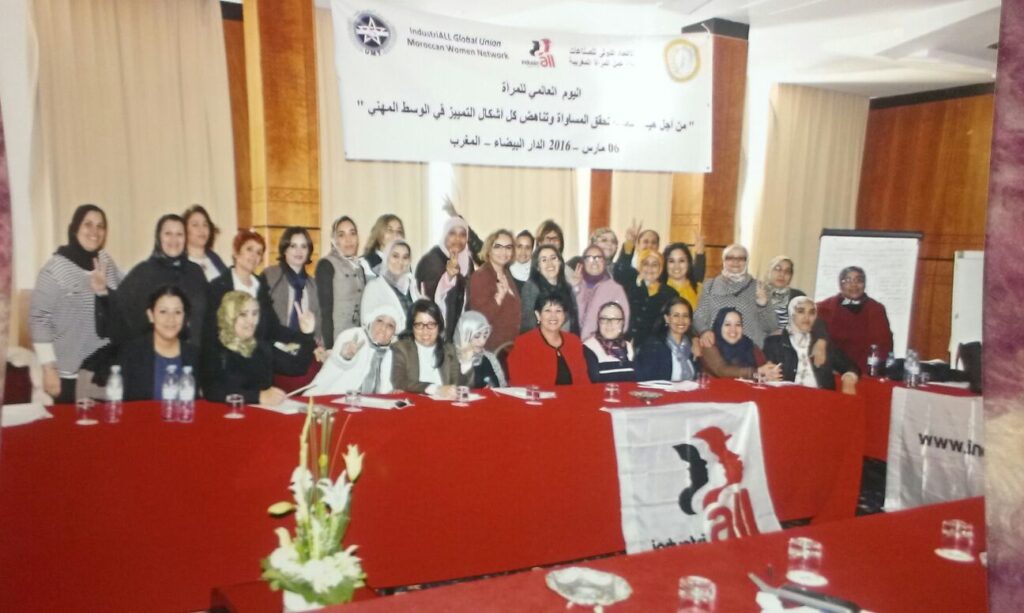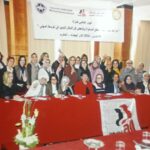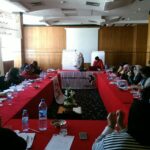18 March, 2016Women from IndustriALL Global Union affiliates in Morocco have come together for the first time to seek ways to influence a draft law which will set up a new institution for equality.
Thirty women from the petroleum, energy, chemical, gas, textile, auto and pharmaceutical sectors met on 6 March in Casablanca for the workshop to mark International Women’s Day entitled “For an authority which reinforces equality between men and women, and fights against all forms of discrimination at work.”
Article 19 in Morocco’s new constitution affirms that men and women enjoy equal rights and liberties in all aspects of society including civil, political, economic, social, cultural and environmental spheres.
The constitution stipulates that a body must be created in order to achieve equality between men and women. The Moroccan parliament is now debating a draft law to set up the Authority for Parity and the Fight against all forms of Discrimination (APALD). The bill has come under heavy criticism from trade unions and women’s organizations alike.
Latifa Benwakrim from SNIPGN-CDT, IndustriALL’s Moroccan affiliate in the petrol and gas industry, said:
“Not only have trade unions been excluded from the discussions over the APALD, but the draft bill is limited to public life and does not apply to women at work. Women in the workplace face discrimination for their trade union activities, their family responsibilities, being pregnant and for taking maternity leave, which all create a hostile working environment. Women also face discrimination in the form of bullying and cruel, inhumane and degrading treatment in their place of work."
The goal of the workshop is to produce a list of recommendations so that the draft law will increase the remit of the APALD to protect all forms of discrimination against women in the workplace as well as in civic life.
“This new body to achieve gender equality cannot be controlled by the government. It has to be independent and it must be applied to women in the workplace. The new authority must also respect the constitution and the international standards and treaties to which Morocco is a signatory.”
“There is a huge amount of discrimination against women, particularly in industrial sectors,” adds Benwakrim. “It is a very masculine environment. We want better working conditions for women and equal rights.”
Women at the workshop shared their opinions on APALD and discussed the different forms of discrimination suffered by women working in the industrial sector. They are now working on a list of recommendations to stop discrimination of women at work.


